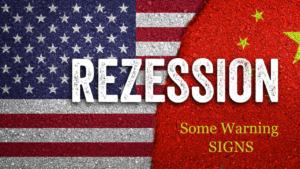
We are all by now aware of the trade conflict, (which some call trade war), between the US and China; which escalated last month when President Trump raised tariffs on hundreds of billions of dollars’ worth of Chinese imports to 25% from 10% and threatened levies on all Chinese goods.
We have produced many YouTube videos on the subject and no doubt will produce many more.
We also alerted subscribers last week to Washington’s new tariff threats against Mexico starting 10th June, resulting in stock markets tumbling around the world and the 10-year U.S. Treasuries yield falling to 2.121%, a nadir last seen in September 2017.
According to some, this move also jeopardises the proposed replacement to NAFTA if these tariffs are in fact imposed.
The latest video on this subject is entitled
‘Gold & Silver Prices Rise on Mexico Tariff Threat’
https://www.youtube.com/watch?v=Iao97-WaSpc
We have also mentioned the US removing favoured import status to Turkey and more recently India on a range of goods in effect resulting in higher import prices of those goods. Only yesterday we produced a video entitled:
‘India’s Growth is Falling – What about Gold & Silver Demand?’
https://www.youtube.com/watch?v=uXj62ZfjrK8&t=1s
where we address this issue in relation to India.
Now most of these tariffs and or favoured status treatment removals have either only recently taken place or are about to take place, and we have seen already, some clear indications of economic setbacks, that these have, to some large extent, already caused.
It is reported by Reuters today that:
“Factory activity contracted in most Asian countries last month as an escalating trade war between Washington and Beijing raised fears of a global economic downturn and heaped pressure on policymakers in the region and beyond to roll out more stimulus.
Such growth indicators are likely to deteriorate further in coming months as higher trade tariffs take their toll on global commerce and further dent business and consumer sentiment leading to job losses and delays in investment decisions.
Some economists predict a world recession and a renewed race to the bottom on interest rates if trade tensions fail to ease at a Group of 20 summit in Osaka, Japan at the end of June, when presidents Donald Trump and Xi Jinping could meet.”
Now economic figures, which we all know tend to lag what is actually happening real time, show that in Japan, South Korea, Malaysia and Taiwan; PMI’s (Purchasing Managers Indices) were below 50 (meaning contraction) and were below expectations in Vietnam. Though admittedly in China they stand at 50.2 meaning very moderate expansion, but one cannot assume that this will continue and not retract below that crucial 50 level.
The inevitable response from policy makers and central banks will be to reduce interest rates and look at ‘boosting domestic spending’ to compensate, and it is expected that as early as this week, Australia and India will cut interest rates; with other countries possibly following suit.
Europe is in no better a situation either, where Eurozone activity is expected to shrink as well.
In contrast though US manufacturing is expected to grow steadily, but will eventually be affected by this potential recession in the rest of the world.
This has therefore led to forecasts by the likes of JP Morgan for the FED to cut rates twice this year when only a short time ago it expected it to hold rates steady until 2020.
Our assessment is that there may indeed be one rate cut this year, but it is more likely to happen in the latter quarter i.e. September or later, and not as early as July, as some are predicting; if it does happen at all. We shall need to see further reporting before we can be more certain.
Coming briefly back to China and the US.
We have stated time and time again, in fact for a number of years, that these two economies currently dominate the global marketplace and their inter-relationship is paramount for global economic health. The fact that they have temporarily fallen out, though concerning, is not, at this moment, devastating.
Having said that however, this past weekend, tensions flared again between the two, over trade, technology and security. The catalyst being concerned with security disputes over Taiwan and the South China Sea.
In addition, last Friday, China also threatened to unveil a hit-list of “unreliable” foreign firms, groups and individuals that harm the interests of Chinese companies.
Clearly in retaliation after Washington last month, put Huawei (the Chinese telecoms equipment giant) on a blacklist, that effectively blocks U.S. firms from doing business with it.
We shall end this podcast video with the comments from Chetan Ahya, the Global Head of economics at Morgan Stanley who quoted that if China were to retaliate against the US further;
“we could end up in a (global) recession in three quarters”
Some food for thought no doubt. Meanwhile this morning gold is up £4 at £1037 and up $4 at $1310 while silver is up 10 pence at £11.57 and up 4 cents at $14.65.
What are your thoughts? Are we about to enter a recession or could it be delayed into 2020 or even 2021 as some economists predict?


Leave A Comment
You must be logged in to post a comment.